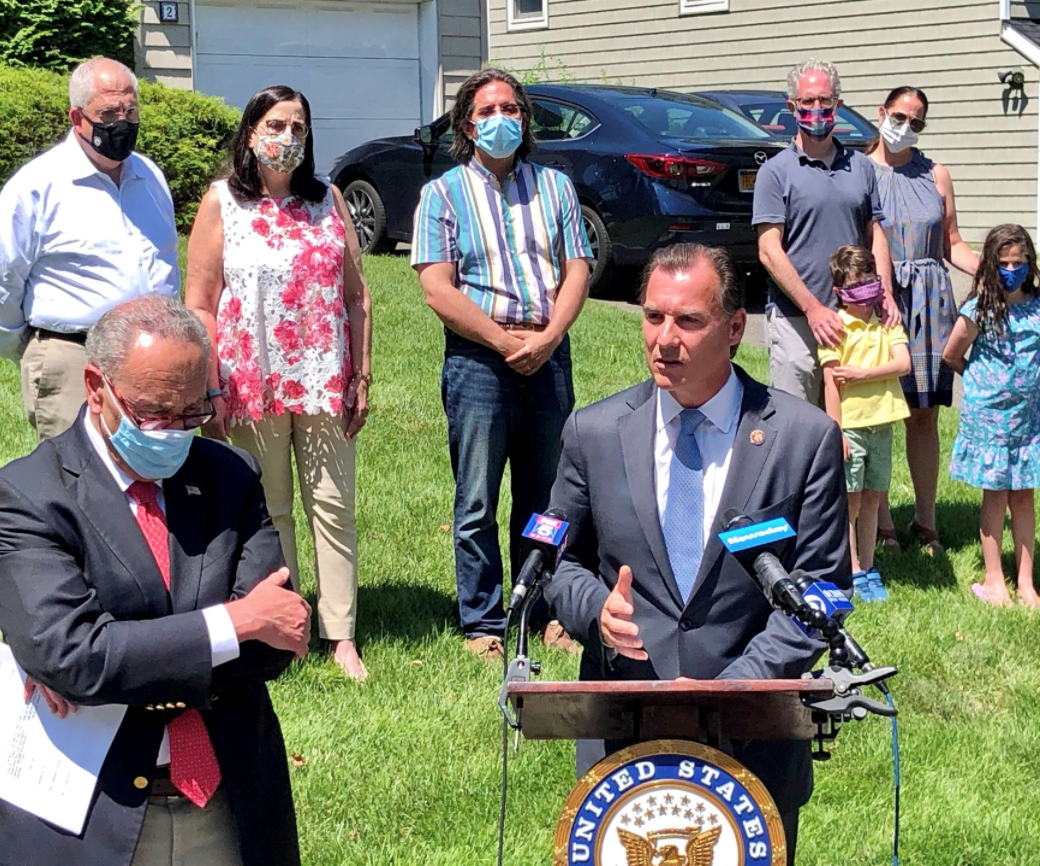Democrats recently reached an agreement on President Joe Biden’s $1.75 trillion Build Back Better Act, including easing limits on the state and local tax deduction, known as SALT.
Early Saturday morning, the House of Representatives passed a procedural vote for the bill, setting up conditions on the final vote. Also finalized with the vote are what is contained in the bill itself.
Congress is in recess this week, setting the earliest date for passage as next week. Senate Majority Leader Chuck Schumer (D-N.Y.) said if the bill passes in the House, he hopes the Senate will pass it as well before Thanksgiving.
Under legislation signed by then President Donald Trump, the deduction for state and local taxes on federal income tax forms is capped at $10,000. This has the effect of raising federal taxes for homeowners in areas with high property taxes like the North Shore.
Amendments to the bill on Nov. 4 would raise the cap to $80,000 from 2021 to 2030 and revert it to $10,000 for 2031.
U.S. Rep. Tom Suozzi (D-Glen Cove) has long said that he would not vote for any changes to the tax code without increasing the SALT cap.
Last Friday he released a statement with U.S. Reps. Mikie Sherrill and Josh Gottheimer of New Jersey regarding the tax relief in the Build Back Better measure, touting the agreement’s aim to benefit the pockets of the middle class.
“This agreement to address the cap on our State and Local Tax (SALT) deduction will effectively eliminate the undue burden for nearly all of the families in our district who’ve been unfairly double taxed for the last four years,” the statement reads.
Suozzi previously said to reporters that New York is negatively affected by the deduction because it is the largest net donor to the federal government and residents are taxed on income used to pay local and state taxes. In 2019, Suozzi’s bill to restore the SALT deduction passed in the House but not the Senate.
If the bill passes in the House, the tax deduction still faces opposition in the Senate. Sen. Bernie Sanders, an independent from Vermont, said last week, following a proposal to increase the cap to $72,500 for five years, that the last thing Democrats should be doing is “giving more tax breaks to the very rich.”
“According to media reports, Democratic negotiators are working on a repeal of the SALT deduction cap for up to five years, which would cost $475 billion and give the richest 5% $400 billion in tax cuts,” the statement said. “As a result, the top 1% would pay lower taxes after passage of the Build Back Better plan than they did after the Trump tax cut in 2017. This is beyond unacceptable.”



